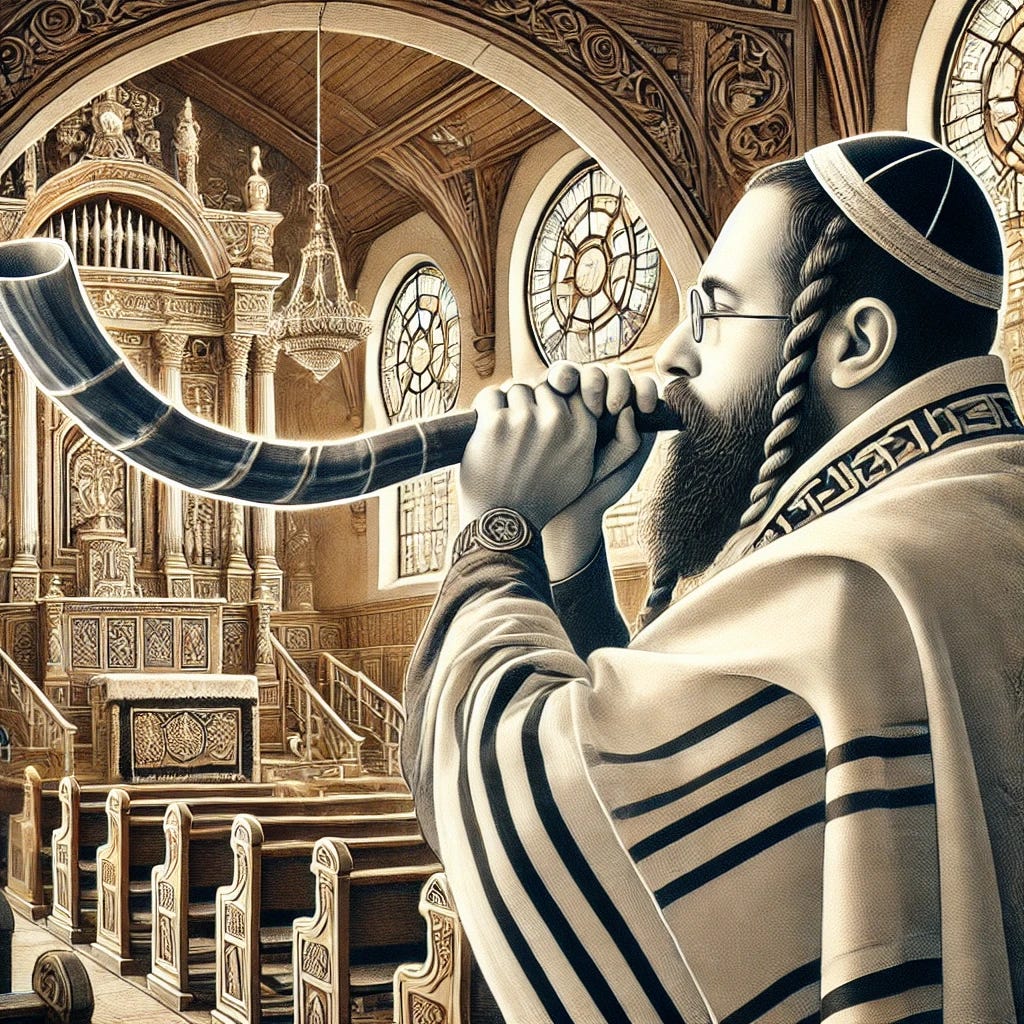Teshuvah Beyond Borders: Embracing the Global Message of Respect and Self-Affirmation
Blowing the shofar is a wake-up call. We need to wake up to our needs as worldwide humanity.
The following essay explains the present holidays of Rosh Hashanah and Yom Kippur. However, my central theme is that religious messages have context and meaning for everybody worldwide. It is a tragedy that religions of different types have become or always have been contentious. In the present day, Muslims and Jews are fighting each other. Historically, there have been endless religious wars. Ironically, the message of all religions is one of respect and peace. And that should be messages of peace and mutual respect.
This essay is meant for everybody, regardless of their religious belief or non-belief in any religion. I hope you find it interesting. Please submit your comments. To note, I am not religious.
All religious holy days carry messages for people of all faiths and non-believers in any religion.
A central theme of Rosh Hashanah and Yom Kippur is Teshuvah. It's about returning to and honoring who we are individually. In her essay, Rabbi Jan R. Urbach describes Teshuvah as a creative process where we imitate God and become partners in creation. And what are we creating? Ourselves." From this perspective, Teshuvah is about opening a world of possibilities by being true to who we are.
One person expressed it: "Teshuvah, after all, doesn't just have to be repentance for our sins or resolving to do better. It can also be a chance to practice self-affirmation and love, to honor who we are destined to be. I hope that no matter how you identify, during this season of Teshuvah and throughout the new year, you honor and love yourself for who you are."
Rosh Hashonah is the Jewish New Year, marking the beginning of the Hebrew calendar year. It usually falls in September or early October. The holiday lasts two days and is a time for reflection, self-examination, and prayer.
During these holy days, people come together in synagogues for special prayers, including the powerful sound of the shofar, a ram's horn, a central holiday symbol. The shofar's sound is not just a personal awakening but a communal one, reminding us all to return to a path of righteousness.
Rosh Hashonah is a time to seek forgiveness from others and God, setting the tone for personal renewal. It is also a time to make resolutions and seek to improve oneself in the coming year. This holiday is a unique opportunity for personal growth and a fresh start, inspiring us to be the best version of ourselves in the year ahead.
This holiday begins the ten days called the Days of Awe, culminating in Yom Kippur, the Day of Atonement. These holidays encourage reflection on the past year, repentance, and the desire to start fresh with a clean slate.
The shofar is a ram's horn that holds deep significance during Rosh Hashonah and Yom Kippur. Its sound is a key part of the religious observances on these holy days. On Rosh Hashonah, the shofar is blown to signal the Jewish New Year's start and awaken people spiritually. The sound is a call to reflection, urging individuals to reflect on their past year's actions and seek improvement. It is also a reminder of the need for repentance and a return to righteousness.
The shofar's blasts during Rosh Hashanah and Yom Kippur are not just a call to gather but a spiritual alarm that stirs the soul and urges action. They remind us of God's sovereignty and the seriousness of the judgment during this time. Tradition teaches that God reviews people's actions and determines their fate for the coming year. The shofar's sound is a call to Teshuvah, a reminder of the need for repentance and a return to righteousness.
On Yom Kippur, the shofar is blown after the fast, marking the end of the Day of Atonement. This final blast symbolizes the closing of the period for repentance and renewal. It signifies a fresh start as the community moves forward, hoping to be inscribed in the Book of Life for the coming year. The shofar's sound on Yom Kippur brings a sense of completion to the intense reflection and spiritual work that began on Rosh Hashonah, filling us with hope for the new year.






Shana Tovah, beautiful summary 🥰thanks